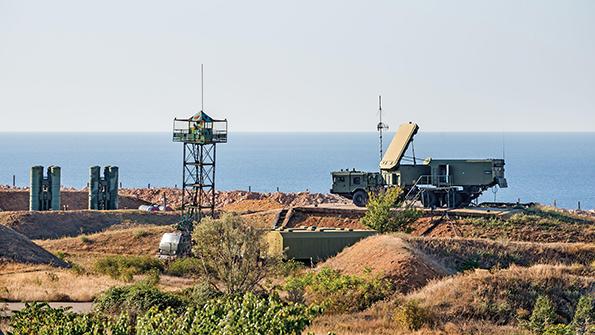Opinion: Can Turkey’s Role in NATO Be Saved?

Turkey’s recent decision to block accession talks regarding Sweden and Finland’s entry into NATO has reignited questions about the transcontinental nation’s commitment to the 73-year-old alliance following Russia’s invasion of Ukraine. While Western countries are seemingly more united than they have been in a generation, with many increasing defense spending, it’s fair to wonder if Turkey itself is facing an inflection point. Will the nation play the part of loyal NATO member, agreeing to expansion in the face of Russian aggression, likely extracting some concessions in the process, or will it choose to deny the expansion, further complicating an already precarious relationship between the West and its uneasy ally?
Since it joined NATO in 1952, Turkey has served a vital security role as it bridges both Europe and Asia. Possessing NATO’s second-largest military, it has bolstered stability in a region ripe with upheaval. It has embraced its strategic location on the eastern and southern edge of the alliance, housing multiple allied installations within its borders such as Incirlik Air Base, which provided a crucial advantage in the U.S. war against the Islamic State group. More recently, it has supplied its Turkish-made Bayraktar TB2 armed drones in support of Ukrainian resistance. Additionally, it acts as an important bulwark against a growing Russian presence in the Black Sea since the annexation of Crimea in 2014.
In recent years, however, Turkey has proven to be a mercurial, if not problematic partner. Against the urging of the U.S., Turkey, an original Joint Strike Fighter risk-sharing partner, proceeded to procure Russian S-400 air defense systems. This finally resulted in its expulsion from the F-35 program in 2019. Congress also voiced concerns about allowing Turkey to purchase new F-16 fighters. Subsequent disagreements regarding American support for the Kurdish rebels in Northern Syria led to a further deterioration of U.S.-Turkish relations. This support of the Kurds is at the heart of Turkey’s refusal to allow NATO expansion talks to begin. It believes Sweden and Finland harbor and support members of the Kurdistan Worker’s Party (PKK), which Turkey, the U.S. and EU classify as a terrorist organization. It should not be ignored that Turkey’s more aggressive behavior has coincided with the increasingly nationalistic approach of President Recep Tayyip Erdogan, who has taken a more undemocratic approach toward the press, the courts and human rights.
That’s not to say all is lost. There are still ways for both sides to salvage this relationship and save face in the process. While unlikely, Turkey could agree to transfer its S-400 batteries to Ukraine, which would not only appeal to its NATO allies but could conceivably satisfy requirements for rejoining the F-35 program. Additionally, should Turkey agree to NATO expansion, Congress undoubtedly would reconsider its previous stance on allowing Turkey to modernize its F-16 fleet. Turkey is currently interested in acquiring 40 Block 70 F-16s in addition to 80 upgrade kits for its existing fleet. Turkey is adamant about the need to upgrade its fighter fleet, given its renewed hostilities with Greece over access to natural gas in the Eastern Mediterranean and Greece’s subsequent declarations that it is prepared to modernize its fighter force with F-35s after 2028. Should Turkey decline to cooperate, not only would the F-16 upgrade likely be denied, but future acquisitions of Western equipment could also be off the table. Turkey would then find itself with an aging fighter inventory surrounded by neighbors with fifth-generation jets. Furthermore, Turkey’s indigenous fifth-generation fighter, the TF-X, is not expected to enter service until at least the end of the decade.
At the time of its creation, NATO acted as a check against Soviet power and helped strengthen the bond between the U.S. and its European allies. While struggling to find an identity after the Cold War, NATO members have more recently been united by a shared sense of ideals, morals and democratic values. Russia’s invasion of Ukraine galvanized the alliance, further strengthening the belief that there is no place for authoritarian strongmen who publicly disregard democratic principles. Turkey is on the precipice. It can continue its slide toward authoritarian rule and forge a path independent of NATO, or it can be a vital strategic partner, the alliance’s eyes and ears, where East meets West. While it is able to straddle the line today, there may come a time when Turkey must choose which path it prefers . . . because it likely can’t pursue both.
Michael J. Cisek is a senior associate at AeroDynamic Advisory.





Comments
Based on these facts I don’t see any irrationalty in Turkey’s decision to not let Sweden join NATO.
Would the US let a country who has an ex ISIS affiliated/trained parliment member join NATO? NATO is a defensive organization, an Turkey is acting based on its legitimate security concerns.
Apart from this, it is true that Turkey is diverging to a more opressive and authoritarian regime. While this may be true, Erdogan himself is losing popular support day by day and by the next election he may be long gone.
This alliance is a multi way relationship. Russia itself is a real threat to Turkey as well, especially near the Black Sea region. Both sides need to take a step.